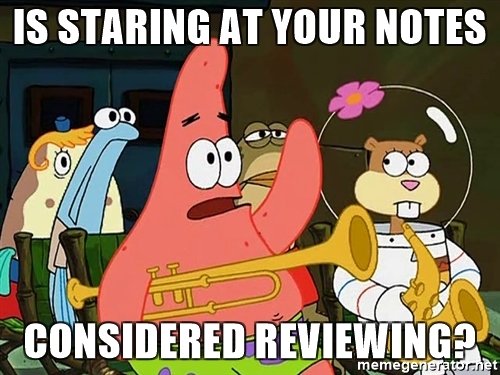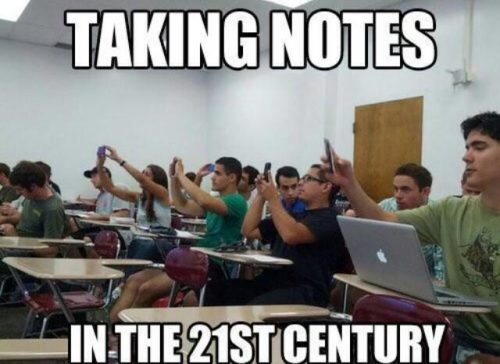If there's one thing all university students can likely agree on, it's that it can be difficult to keep up with all your classes and make sure you're taking good notes. It can be easy to blame the prof or the people sitting behind you for your terrible notes, but in the end it is up to you to make the most out of your education! Even if you already take good notes, there’s always a way to up your game. If you work hard now, your future self will be thanking you during finals.
Before class
Review your notes from last class to get yourself in the mindset of the lecture. I know I’m guilty of using those precious moments before class to catch up with friends or scroll through Instagram.

During class
Actually going to class and staying engaged is the most important thing for good notes. Profs will emphasize important concepts of the lecture (and maybe hint at what will be on the exam!). Plus, lectures are full of in-depth examples or anecdotes which are key to understanding difficult material.
Remember: note-taking is a reflection of how YOU think. Don't rely on your classmate’s notes because they may not mean anything to you.
Be an active listener! This means limiting potential distractions, silencing your phone, and focusing on the lecture. If you need coffee or snacks to stay awake, do it! To stay awake and interested, it’s helpful to engage with the material and make it interesting for you.
Only write down what’s relevant—there’s no need to copy word for word from the slide or what your prof says.
Use abbreviations. You can make your own shortcuts to save time.
Different ways to take notes
Cornell Note-Taking System: This method separates out definitions/important concepts from their definitions/explanations. Each page also ends with a summary section, which helps reiterate material. Check out this video explaining how to use this method.
T-Method: This system is especially helpful for science students! Concepts and information goes on the left and questions, ideas, and opinions go on the right.
Remember: If you’re having trouble following a lecture there's no harm talking to your professor about it. Approach them after class or during office hours and explain your problem. Maybe they can add their slides on BrightSpace or slow down or speak up. It never hurts to ask!

After class
Try to go over your notes within 24 hours! I know this sounds dreadful, but it really does help with understanding and remembering the material.
Make a study group and discuss the class material. Talking through concepts with others is a great way to understand it. If you’re able to teach your classmates the material, that’s a great indication you know your stuff.
If you’re on one of the Halifax campuses, Studying for Success has regular workshops that cover everything from note-taking and presentation skills to time management and strategies for multiple choice exams. Some profs even offer extra credit for attending these classes, and they’re free! Visit dal.ca/sfs to learn more.
If you're on the Agricultural Campus, the Student Success coordinator offers regular study skills workshops throughout the year—including ones on taking notes!


